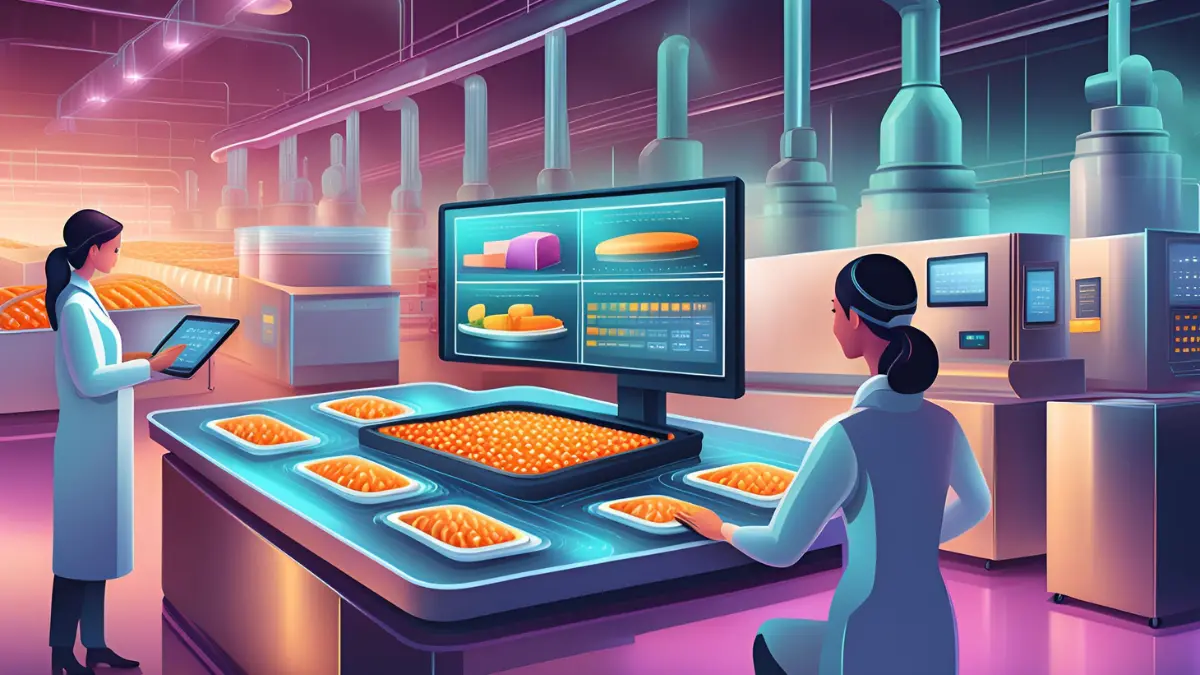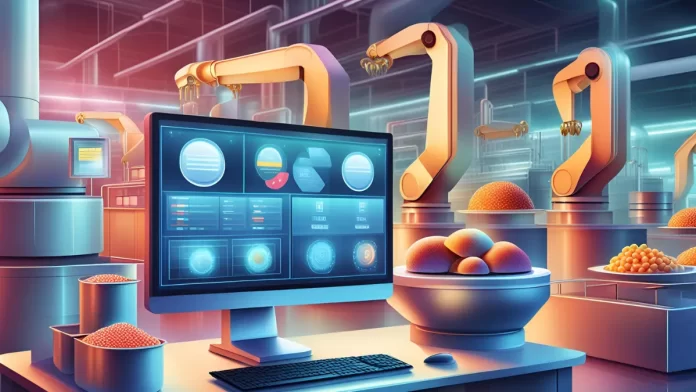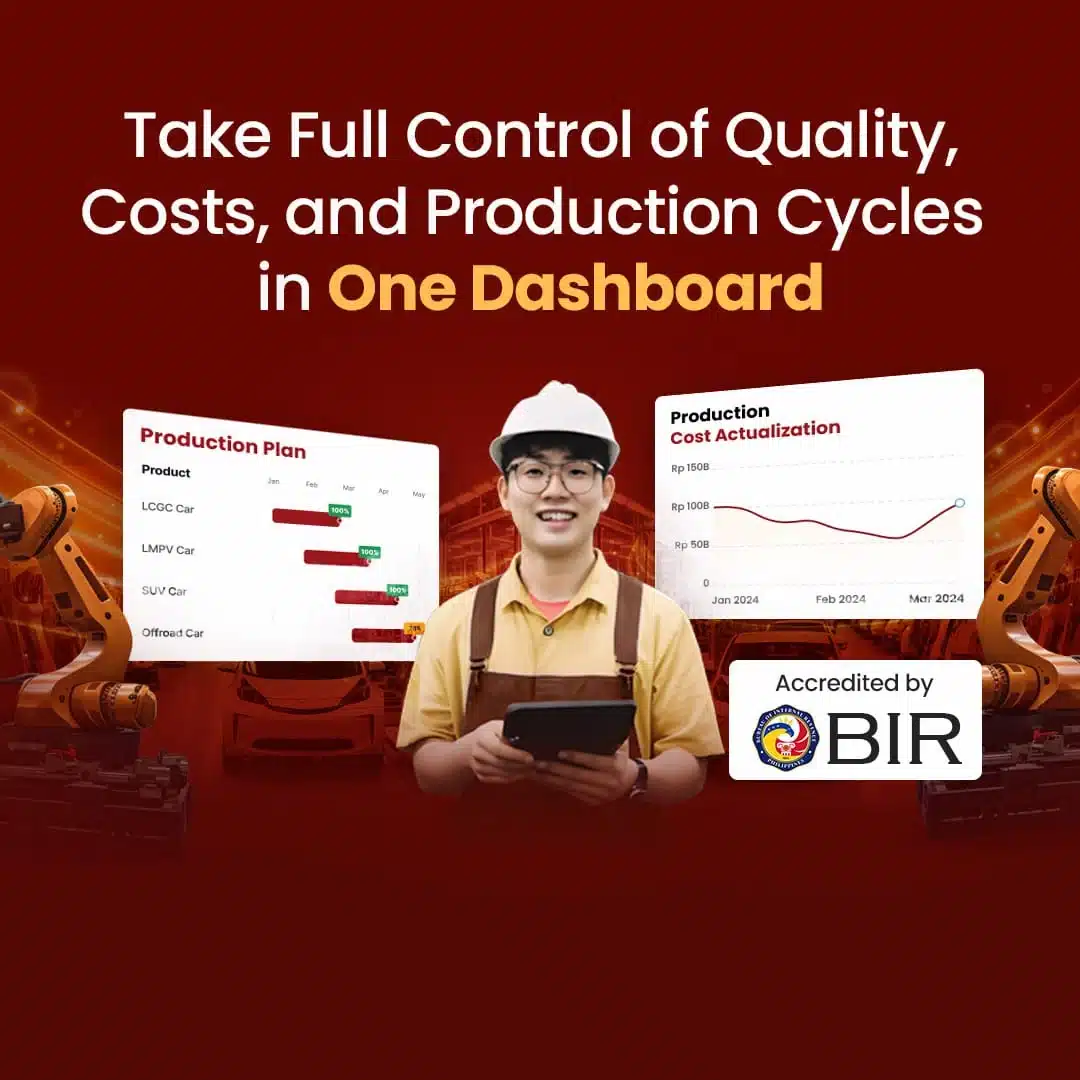The food manufacturing industry in the Philippines is a vital part of the economy. It covers various sectors, from raw ingredient processing to the manufacture of food products. This industry not only supports food security but also provides numerous jobs for Filipinos.
In 2021, the Philippines’ food and beverage (F&B) industry contributed nearly half of the manufacturing sector’s output, according to the YCP. This shows the F&B sector’s key role in boosting the economy, driving local consumption, and creating jobs that sustain the nation’s growth.
This article explores the Philippine food manufacturing landscape, its challenges, and strategies to overcome them. Pag-uusapan din natin how using technology like HashMicro ERP solution can help businesses boost efficiency and remain competitive.
Key Takeaways
|
Table of Contents
Overview of Food Manufacturing in the Philippines
The food manufacturing industry in the Philippines is vast, covering a range of sub-sectors like processed food, beverages, dairy, snacks, and more. This sector plays a key role in the economy, contributing significantly to both domestic and export markets, as well as providing essential employment.
A 2023 YCP Solidiance report highlights the F&B sector’s dominance in manufacturing, reaching over USD 25 billion in retail sales by 2021. This growth was supported by rising incomes, a growing population, and modern, digital operations shaping the industry.
Pero, the industry faces significant challenges, including intense competition, rising operational costs, and the need for digital transformation, particularly among MSMEs. Addressing these challenges is crucial for ensuring sustainable growth and continued success in the sector.
Importance of Efficiency in Food Manufacturing

The food manufacturing process industry is one of the largest in the Philippines, providing numerous jobs and contributing significantly to economic growth. Its impact is not only economic but also cultural, as it supports the country’s rich culinary traditions and regional cuisines.
As a major contributor to job creation and income generation, the food manufacturing industry plays a vital role in the nation’s economy. To maintain its competitiveness and meet growing demand, businesses must focus on improving efficiency and streamlining operations.
By enhancing operational efficiency, companies can minimize administrative tasks and allocate more resources toward innovation and growth. This allows the industry to continue driving economic resilience, supporting both sustainability and long-term development in the Philippines.
One of the most effective ways to do this is by implementing an ERP system for the business. Explore the best food and beverage ERP and food manufacturing software to enhance your business’s operational efficiency.
Challenges in the Philippines’ Food Manufacturing Industry
The food manufacturing business in the Philippines is a key player in the country’s economy but faces several significant challenges. These challenges impact the sector’s ability to grow, innovate, and compete globally.
- Competition from Imported Foods: Local products face tough competition from cheaper and sometimes higher-quality imports.
- Lack of Investment in R&D: The industry’s slow investment in research and development limits innovation and competitiveness.
- Poor Infrastructure: Inefficient transportation and storage increase costs and disrupt supply chains, affecting global competitiveness.
- Stringent Regulations: Strict food safety and quality regulations, while necessary, can be expensive and time-consuming to comply with.
- Climate Change: Extreme weather events negatively impact crop yields, raising production costs and affecting supply chains.
Kahit na ganon, the Philippine food manufacturing industry is well-positioned for future growth. By investing in innovation (such as manufacturing ERP), infrastructure, and sustainable practices, along with continued government support, the sector can overcome these challenges and thrive in the global market.
Innovative Solutions for the Food Manufacturing Industry

Despite the challenges when manufacturing food in the Philippines, technology offers solutions that can bridge the gaps caused by poor infrastructure and logistics. Food manufacturer can ultimately improving productivity across the entire supply chain.
Bukod pa rito, binabago na ng digital na teknolohiya ang mga gawain. Cloud-based systems improve inventory management and production control, lowering costs. Meanwhile, e-commerce platforms help expand market reach, allowing producers to connect directly with consumers and boost agility.
Dahil dito, embracing technology-driven solutions helps businesses overcome current obstacles while positioning them for long-term growth. With innovation and digital transformation, the industry can better contribute to the economy and meet growing consumer demands.
To further enhance efficiency, companies should adopt key strategies like:
- Prioritize food safety: Ensure hygiene and prevent contamination by following strict cleaning schedules and food safety protocols.
- Develop a production strategy: Long-term plans with market analysis help businesses stay responsive to shifting consumer needs.
- Automate manufacturing: Automation cuts costs, boosts traceability, and ensures production meets industry standards efficiently.
- Balance budgets and margins: Invest in areas that maximize product margins, while performing regular risk assessments to sustain profitability.
- Optimize the supply chain: Improve inventory and transportation, reducing waste and cutting costs by forecasting demand more accurately.
By adopting these strategies and embracing innovation, food manufacturer and the Philippine food industry examples other industry sectors to overcome challenges and secure long-term sustainability.
If you are interested in trying out a cloud-based system and feel the difference that it would give your company, click the banner below to see the HashMicro ERP pricing scheme.
Boosting Efficiency and Growth with ERP in Food Manufacturing
Efficiency is key for a sustainable food manufacturing industry, especially with current operational challenges. HashMicro’s ERP solution is designed to address these issues, offering food manufacturers an all-in-one platform to streamline processes and maximize productivity.
With HashMicro, manufacturing software can cut waste by optimizing sourcing and production workflows. Additionally, the system enhances traceability by tracking ingredients from farm to table, improving accountability and ensuring compliance with food safety standards.
HashMicro’s ERP provides real-time data, helping food manufacturers make smarter decisions to boost efficiency and product quality. It integrates sales, inventory, and accounting into one complete solution. Plus, you can try a free demo from HashMicro to see it in action.
Here’s how HashMicro’s ERP supports food manufacturers:
- Waste Reduction: Streamlining inventory management prevents overstocking and minimizes wastage by accurately forecasting demand and tracking expiration dates.
- Improved Traceability: Robust tracking systems ensure compliance with food safety regulations by monitoring the entire supply chain from sourcing to delivery.
- Automation and Efficiency: By automating routine tasks and implementing quality checks, companies can reduce errors and boost productivity, allowing staff to focus on higher-value activities.
- Real-Time Data Access: Access to real-time data allows for better decision-making, optimizing production schedules, managing resources efficiently, and increasing profitability.
- Seamless Integration: An ERP system integrates various functions like sales, inventory, and production, providing a unified platform for better communication, accurate reporting, and real-time decision-making.
Kaya naman, ang paggamit ng ERP software ay mahalaga para sa mga food manufacturer na humaharap sa mga hamon ng kasalukuyan. With HashMicro’s advanced solution, companies can refine every part of their operations, from inventory to workforce productivity.
Conclusion
The food manufacturing industry is vital to the Philippine economy, fueling job creation and bolstering food security nationwide. Consequently, to drive growth and stay competitive, it’s essential for the industry to embrace technology and continuously improve operational efficiency.
Para suportahan ito, HashMicro’s ERP software offers food manufacturers tailored solutions in inventory, production, and supply chain management. Through real-time data insights, HashMicro empowers businesses to boost productivity, streamline workflows, and uphold strict food safety standards.
Furthermore, for a hands-on look, HashMicro offers a free demo, allowing companies to explore tools for workflow optimization and sustainable growth. Makipag-ugnayan sa aming team upang malaman kung paano mapapahusay ng HashMicro ang iyong operasyon sa food manufacturing.
Frequently Asked Questions about Food Manufacturing
-
What is the meaning of food manufacturing?
Food manufacturing is the process of converting raw ingredients into consumable food products through methods like processing, cooking, and packaging on a large scale.
-
What is the basic food manufacturing process?
The basic process includes sourcing raw ingredients, processing them into food, packaging the final product, and ensuring quality control.
-
What is considered a food manufacturer?
A food manufacturer is a business that produces, processes, and packages food products for distribution, often involving large-scale operations.
{
“@context”: “https://schema.org”,
“@type”: “FAQPage”,
“mainEntity”: [{
“@type”: “Question”,
“name”: “What is the meaning of food manufacturing?”,
“acceptedAnswer”: {
“@type”: “Answer”,
“text”: “Food manufacturing is the process of converting raw ingredients into consumable food products through methods like processing, cooking, and packaging on a large scale.”
}
},{
“@type”: “Question”,
“name”: “What is the basic food manufacturing process?”,
“acceptedAnswer”: {
“@type”: “Answer”,
“text”: “The basic process includes sourcing raw ingredients, processing them into food, packaging the final product, and ensuring quality control.”
}
},{
“@type”: “Question”,
“name”: “What is considered a food manufacturer?”,
“acceptedAnswer”: {
“@type”: “Answer”,
“text”: “A food manufacturer is a business that produces, processes, and packages food products for distribution, often involving large-scale operations.”
}
}]
}








































































